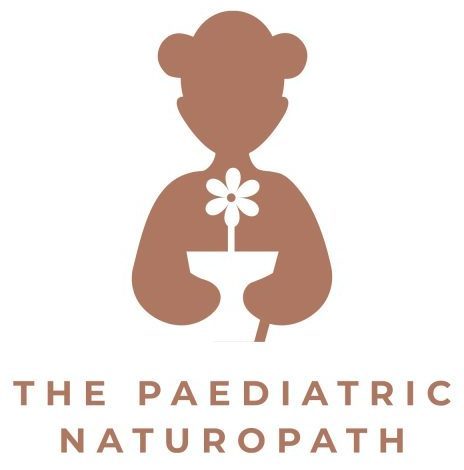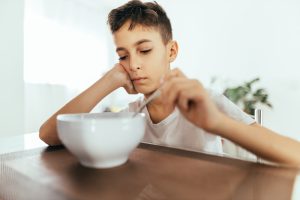Good water intake is one of the most essential things in life. You may have heard that we can survive without food for weeks but when it comes to water, we have only days.
Our bodies are not able to store water and hence need a fresh supply each day to make up for the losses that come from our lungs, skin, urine and stools. These average losses help inform how much fluids we should be drinking each day.
Did you know that when a child is born, water is actually 75% of their body mass! Wow!
This does drop to around 65% by age 1 and then reaches adult levels of around 60% by adolescence BUT this highlights that we are still very much water.
So, why is water important?
Good water intake and proper hydration is essential for our bodies to carry out SO many functions.
Proper hydration…….
- helps our blood flow freely to be able to deliver oxygen and nutrients to every cell in our body and remove wastes and toxins out
- helps our lymph fluid circulate freely to be able to deliver nutrients to the blood (as this is the primary route of fats and fat-soluble vitamins- Vitamin A, D, E and K- to be absorbed into the body) and remove wastes, toxins and destroyed bacteria (there is a lot of immune activity that goes on in the lymphatic system)
- supports healthy kidneys and bowels with the removal of wastes and toxins out
- reduces the risk of urinary tract infections
- supports proper digestion and prevents constipation
- maintains a healthy lining of the airways and digestive tract ensuring our first line of defence is strong and robust,
- moisturises the skin supporting its ability to protect us from the outside world,
- helps the body’s ability to regulate body temperature through sweating,
- supports our ability to think clearly and carry out tasks, pay attention and concentrate as the brain can be 80-90% water in kids,
- supports activity levels and physical performance.
Habits set as a kid are greatly associated with persisting into adulthood.
Meeting fluid intake with healthy options is key.
How much water should my child be drinking each day?
The following recommendations are based on the guidelines set out by the Australian Government for Nutrient Reference Values
Children under one
For infants up to the age of 6 months, fluid intake is met sufficiently with breast or formula milk.
Between 7 and 12 months of age, breast and formula milk continues to be the main source with fluids from foods and water being added to top up the extra requirements. With an approximate daily 600ml of breast or formula milk, it is recommended to add an extra 300ml of fluids per day. This can come from offering small amounts of water in an open hand-held cup at meal times or including fluids such as chicken stock, bone broth or plain water when making purees, mashes, and meals.
Children over one
| Total recommended water intake (from foods and fluids) | Recommended fluid intake (from plain water and other fluids) | |
| Age 1-3 | 1.4L/ day | 1.0L/ day |
| Age 4-8 | 1.6L/ day | 1.2L/ day |
| Age 9-13 Boys | 2.2L/ day | 1.6L/ day |
| Age 9-13 Girls | 1.9L/ day | 1.4L/ day |
Note: Children who live in warmer climates or are very active will require higher amounts.
Tricks to increase water intake
Some kids don’t mind plain water while others find it unappealing.
Remember water recommendations can be met not only with plain water but other fluids as well. Keep in mind these other sources need to be healthy options and we need to avoid soft drinks and other high-sugar beverages.
Juices can be helpful for the fussy ones but it is best kept to a minimum. Juices should not be given to children under one. Juices can be watered down at increasing amounts to help get kids used to drinking more water.
Home-made juices are best and can include hidden veggies as well.
Smoothies are another option. You can use coconut water or almond milk as the fluid source.
In summer, you can make up home-made juices or smoothies and pour into ice-block moulds for home-made ice-block treats.
Some kids enjoy adding fruit slices or fresh herbs such as mint to a bottle of water for a little extra flavour.
Herbal teas are a great idea. Some examples for kids include chamomile, peppermint, ginger, lemon balm and rooibos tea. They don’t have to be given warm but can also be made up and put in the fridge for a nice cool, refreshing drink.
Chicken stock, mushroom broth or bone broth are also sources of fluid and double-up as gut and immune boosting powerhouses.
A word on water quality
Water should be as free from pollutants and chemicals as possible.
We are very lucky in this country to have access to clean drinking water. We do need to understand that tap water is not entirely free from contaminants, either due to being added during ‘purification’ or residual from industrial and agricultural wastewater.
Having a quality water filtration system at home is the perfect investment.
There also needs to be a mention on plastic water bottles, especially the soft plastic kinds. Whilst bottled water from the supermarket may seem like a better idea than tap water, it is not free from its own health concerns.
It is best to not wait for the science to catch up and claim the next plastic type as a health issue and opt for a stainless-steel water bottle. These are also reducing your impact on the environment that goes into producing plastics and disposing of them.
Concluding remark
Some of us are very sensitive to toxins and find our detoxification systems easily overloaded by all the sources of contaminants in our environment.
Overloaded kids can have a suppressed immunity, struggle with fatigue or struggle with learning, concentration and behaviour.
Part of our assessment of kids is to consider their exposure to toxins and the health of their detoxification system.
We can also employ a functional test called a Hair Tissue Mineral Analysis to test for heavy metals. This test also gives us an indication of stores of essential minerals such as zinc, iron and selenium which play very important roles in clearing these metals from the body.
Make an appointment today if you are concerned about your child’s detoxification capacity.




